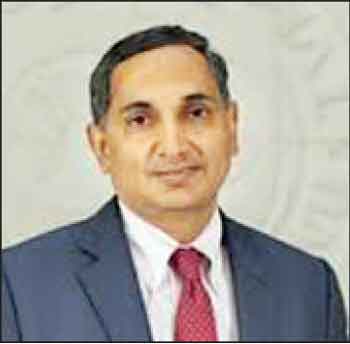Saturday Feb 21, 2026
Saturday Feb 21, 2026
Saturday, 25 October 2025 01:32 - - {{hitsCtrl.values.hits}}
 |
| IMF Asia-Pacific Dept. Director Krishna Srinivasan |
The International Monetary Fund (IMF) has called on Asian economies to reduce non-tariff barriers and strengthen regional trade integration to shield themselves from US tariffs and global financial volatility.
In its latest Regional Economic Outlook for Asia, the IMF said the region’s strong dependence on trade, particularly with China at the centre of global supply chains, leaves it exposed to disruptions from escalating US-China tensions and higher US import duties.
The report noted that growing trade friction with the US, coupled with an investment surge in artificial intelligence, has fuelled an increase in trade within Asia.
Deeper integration, supported by the removal of trade barriers, would allow countries to diversify export markets, cut costs, and better withstand external shocks, the IMF said.
“If Asia integrates more within the region, that itself provides a buffer against external shocks,” IMF Asia-Pacific Department Director Krishna Srinivasan said. He said about 60% of Asia’s exports are intermediate goods traded within the region, while only 30% of final goods are sold regionally, a sign of continued reliance on US and European markets.
The IMF said broader, multilateral trade frameworks similar to those in the European Union could benefit Asia, as the current network of bilateral deals often leads to inconsistent standards.
It also highlighted that non-tariff barriers, which rose during the pandemic and remain widespread, are dampening regional trade prospects.
Some Asian countries have begun easing such barriers during negotiations with the United States, which the IMF described as a welcome development.
Greater regional integration could raise Asia’s GDP by up to 1.4% over the medium term, and boost output among ASEAN economies by as much as 4%, the Fund said.
Asia’s economy is expected to grow 4.5% in 2025, slightly slower than 4.6% last year but stronger than earlier projections, driven in part by front-loaded exports ahead of potential new US tariffs.
Growth is forecast to ease to 4.1% in 2026 amid weak Chinese demand and subdued consumption in emerging markets.
“Trade policy uncertainty has declined somewhat since April but remains elevated, and could weigh on investment and confidence more than expected,” the IMF cautioned.